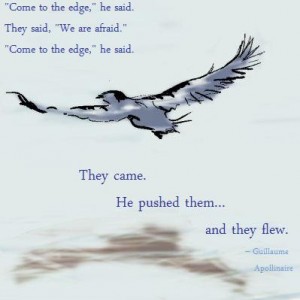This article continues two earlier posts: Wordiness Is Not a Style – Part 1, and Wordiness Is Not a Style – Part 2. If you haven’t yet read those preliminary articles, please do so before continuing here.
Okay, so here’s the part a few people have been anxiously awaiting: practical examples.
Triggers: Specific Phrases that Often Lead to Wordiness
These seven items are some of the most common Wordiness Triggers I see when I edit.
- There were / There was
- Bad: There were stars shining….
- Good: Stars shined….
- Gave a/an
- Bad: John gave a short laugh….
- Good: John laughed….
- It was [blank] that
- Bad: It was the dog that ate it….
- Good: The dog ate it….
- There was a [blank] that
- Bad: There was a cat that scratched….
- Good: A cat scratched….
- Found himself / To find himself / Found that
- Bad: He found himself lying in a ditch….
- Good: He lay in a ditch….
- Bad: He awoke to find himself soaked in sweat….
- Good: He awoke soaked in sweat….
- Bad: He found that he’d been sleeping….
- Good: He’d been sleeping….
- In what they were / Of what they were
- Bad: The humor in what they were singing was….
- Good: The humor of their song was….
- I’ve got / He’s got / They’ve got / Etc
- Bad: I’ve got a terrible headache….
- Good: I have a terrible headache….
EXAMPLES:
Now, let’s review a series of specific examples from pieces I’ve edited or reviewed. As always, I shall keep confidential the authors’ names and story titles to protect the not-so-innocent. ![]()
BAD: There was screaming, and it pierced my ears like needles of ice. NOTE: “There was” is one of our classic triggers. GOOD (Simple): Screams pierced my ears like needles of ice.
BAD: There were men attacking the village, and through their actions of burning cottages, the forest itself began to flame. NOTE: First, “There were” is one of our classic triggers. Second, a phrase such as “through their actions of” is a major red flag. Third, why say “the forest itself” when a simple “the forest” will suffice? Fourth, don’t provide an action that only “began to” do anything, unless you intend to interrupt that action before it’s complete. GOOD (Simple): Men attacked the village and burned cottages, and the surrounding forest soon flamed. GOOD (Detailed): Men attacked the village and burned cottages, and the flames leapt from cottage to stable, from stable to field, from field to trees, until they cast the surrounding forest ablaze.
BAD: I’m hopeful that I’ll find something. NOTE: The red flag here is “hopeful that.” GOOD (Simple): I hope I’ll find something.
BAD: The few remaining cars are nothing more than burned out shells sitting on bare steel rims where tires once were. NOTE: First, the phrase “are nothing more than” raises a red flag. Second, the final four words are utterly redundant. After all, everyone knows what purpose the steel rims serve. This is no less intrusive and insulting than telling a reader “water is wet.” GOOD (Simple): The few remaining cars, mere burned-out shells, sat on bare steel rims.
BAD: As in all wars, each nation involved believes that the fight will bring improvement in some way; each combatant seeks to gain something, or at least keep all or some of what it already has. NOTE: The first nine words drag out the start of that sentence. Second, I’m always suspicious of phrases like “in some way.” Third, consider the phrase “all or some of.” Yikes! Why even mention it? After all, what else is there? GOOD (Simple): All nations involved in war believe the fight will bring some improvement; each combatant seeks to gain something, or at least to keep what is already theirs. GOOD (Detailed): All nations involved in war believe the fight will bring some improvement; each combatant seeks to gain something, or at least to preserve their treasure, their families, their way of life.
BAD: His tone became less harsh as he spoke to the child. NOTE: Beware of anyone that “becomes” anything. Slap the writer’s wrench around that thing and tighten it up. GOOD (Simple): His tone softened as he spoke to the child. GOOD (Simple): He spoke to the child in soft tones.
BAD: With an open hand, he pushed Steve backward toward the sunlit stream from which the people of Centerville obtained their water. Steve found himself setting among the summer brambles that grew there. NOTE: Hmmm… is “with an open hand” truly necessary? Does it add anything? What of the word “sunlit” in this case—how is it germane to the fact they get their water from that stream? Details are great, provided they’re also relevant. If this detail supplements others, then fine; if not, kill it. As for the second sentence, beware characters who “find themselves” doing anything. The Nike marketing folks had it right. “Just do it!” They didn’t say, “Just find yourself doing it!” Finally, if the summer brambles didn’t grow there, how would they have gotten there? Please don’t state the ridiculously obvious. GOOD (Simple): He pushed Steve backward toward the stream from which the people of Centerville obtained their water. Steve fell into a patch of summer brambles.
BAD: Their eyes and minds work furiously as they attempt to discern her purpose. NOTE: Why else would they “work furiously,” except to “attempt” to do something? GOOD (Simple): Their eyes and minds work furiously to discern her purpose.
BAD: From where he stood, he saw her fog-colored hair that moved with the breeze. NOTE: All right, now those first four words are just silly. Would that be as opposed to some sort of out of body experience—from where he didn’t stand? Also, “that moved” is too much here. NOT SO GOOD (Simple): He saw her fog-colored hair move with the breeze. GOOD (Show; Don’t Tell.): Her fog-colored hair bounced with the breeze and assaulted her head in a gray swarm.
BAD: He should have a place to rest through eternity where she might visit him often while she lived, and she would bring flowers. NOTE: We’re getting silly again. First, would that be as opposed to having NO PLACE to rest, WHERE she might VISIT him often? Second, would that be as opposed to her visiting him while she’s dead? GOOD (Simple): He should rest through eternity where she might visit him often, and she would bring flowers.
BAD: A blanket of mist clung to the ground as Mary and John found their way. They threaded the rows of graves. NOTE: First, “found their way” raises a red flag. Second, the two short sentences provide a choppy feel. GOOD (Simple): A blanket of mist clung to the ground as Mary and John threaded the rows of graves.
BAD: When his controlling progressed to violence, and he started hitting her, she hid it from everyone. NOTE: To first say, “his controlling progressed to violence,” and then to say, “and he started hitting her,” is to say the same thing twice, in two different ways. GOOD (Simple): When his controlling progressed to violence, she hid it from everyone. GOOD (Detailed): When he moved beyond simple controlling and started pushing her, slapping her, punching her, she hid it from everyone.
Well, that should be enough for now—plenty to think about as you don the self-editing cap and return to your manuscript. Remember: Pith is not your enemy; it is your friend. Pith will not preclude you from writing high prose; indeed, it will aid you in that endeavor.
Always adhere to this High Commandment of professional writing: Make Every Word Count.
‘Til next time, and as always, remember: To write well, you must work hard. To succeed in this tough gig, you mustn’t be lazy (or discouraged).
———-




Well, not so much, Neetish. I'd need a little more context for the sentence, to be certain. Under the heading of, "There's no such thing as a 100%-er in this business," your first option might be the best, if it's too clunky to expand on it. Again, I need context; however, your second option is awkward, unnatural. It would be better as: "Animosity lingered between them." (Replace "was.") Stronger: "Animosity raged between them."
You may need to focus more on the SUBJECT. In this case, animosity is the OBJECT. Here's a possible alternative, if some expansion and flair is appropriate: "The animosity they felt toward one another hung like a storm cloud in the room."
Now,something like that might just be too much where you've placed it in your piece. Simpler alternative: "Their mutual animosity kept them at odds."
Again, context is everything.
Bad: There was animosity between them.
Correct: Animosity was between them.
yes?
Meh, I'm not sure I agree with all of #7. Look at me being all dissenting :D.
You state:
7. I’ve got / He’s got / They’ve got / Etc
Bad: I’ve got a terrible headache….
Good: I have a terrible headache….
Now, I think the problem is that you show this in the first person, as if it were dialogue. In dialogue, I think this would be perfectly acceptable. However, if it's narrative, the weak verb 'got' is a problem, and it should be restructured to make it more evocative.
In addition, why is it so much better to take away the contraction? Why does *that* solve the problem? In your more-detailed explanations, you fail to address #7 :).
I are revolting against my editor!
I wouldn't disagree in the least that a more evocative alternative is preferred. However, if "I've got" is your choice, "I have" is a better choice.
Hey, you've got some very helpful points there. Thanks 🙂
You're most welcome, Rachel. Thank you for dropping by, and for taking the time to leave a comment — always appreciated.